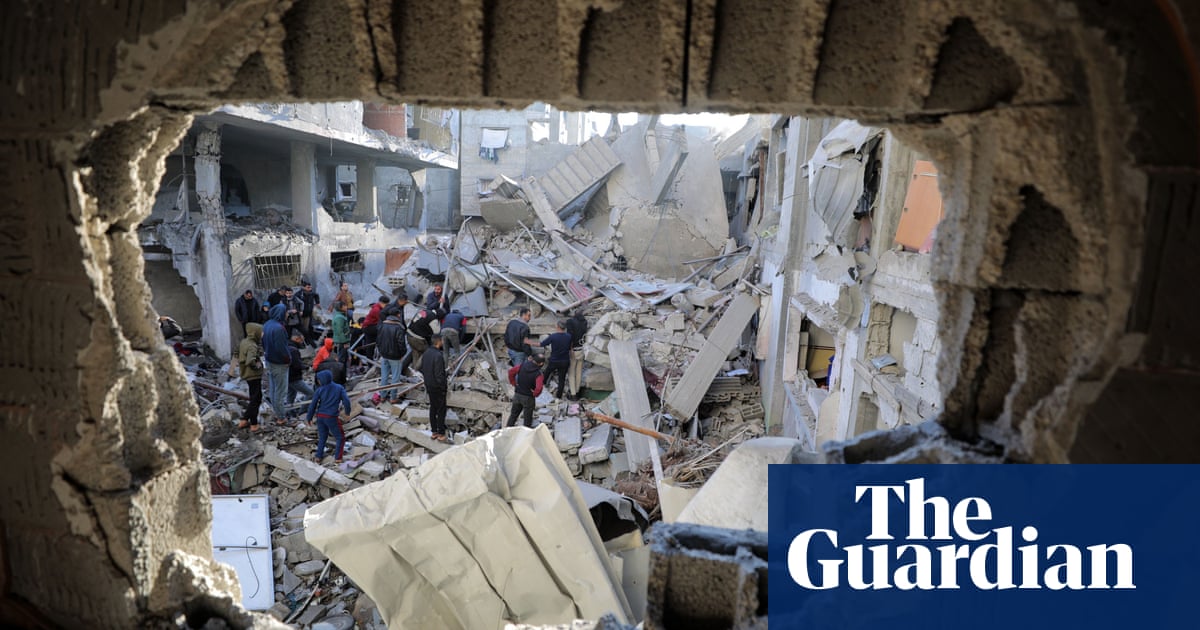Most nights, under cover of darkness, Sandra* ventures underground into the Huanuni tin mine, about 40 miles (60km) south of the city of Oruro, in Bolivia. She walks for around nine hours collecting about 35kg of rocks containing the mineral before heading back the way she came, hiding from anyone who might be patrolling the tunnels.
She sells what she collects through unofficial channels and typically makes 1,800 to 3,000 Bolivianos (£200 to £330) a week.
“I do an illegal job, stealing,” says Sandra, 34. “I do it because I have no choice. I got into it because I had nothing to live on and no job.” She used to stay at home to look after her two children – her son, 14, lives with cerebral palsy – but since her partner left her six years ago, she has been going to the mine at night.
Sandra is one of a growing number of women in Bolivia who have resorted to mining on an informal basis to provide for their families. Some are widows whose husbands died in mining accidents or of related health problems; some are single mothers; others are wives of men who are alcoholics and subject them to domestic abuse. Some women bring their children with them to work to make more money.

Mining is an important part of Bolivia’s economy and accounts for about 6% of its GDP. The country has a wide range of minerals, including tin, silver, gold, copper and zinc.
According to Héctor Córdova, a consultant and former deputy minister of mining, there are about 100,000 people involved in informal, or illegal, mining in Bolivia, on top of about 155,000 people who have registered jobs in the sector, or who are part of cooperatives. Although it is impossible to say with any certainty, he estimates that up to 500 people are involved in illegal mining in the small town of Huanuni, which has a population of about 24,000.
Two decades ago, almost everyone in Huanuni was employed by the mine, he says. But since it was nationalised in 2007, there are not as many jobs. Families have grown and there are no other sources of employment in the town. Nationwide, people working in small-scale farming are struggling and have been hit by the effects of the climate crisis.
Mining continues to be male dominated in Bolivia and women’s place in the industry and its impact on their livelihoods receives little attention. In recent decades, women have started to work in engineering – operating machinery for example – but the majority work for cooperatives or illegally.
While some women work underground, others sort through discarded mine tailings, breaking rocks with a small hammer to separate tin and other minerals, or work on the outskirts of mines scavenging minerals thrown away.

They face gender-based violence; stereotypes and taboos that discriminate against women; income inequality; and exposure to environmental risks. As well as working, they are often in charge of looking after any children and domestic tasks.
Half of the female mining workforce in Bolivia is made up of divorced, widowed and single women with children, according to a 2017 study carried out by Solidaridad, an international civil society organisation. About one in 10 (12%) women in mining are aged over 60, while almost a third (32%) are aged between 41 and 50. A quarter of the female workforce is illiterate and more than half (56%) did not finish primary education.
after newsletter promotion

Maria Reymaga, 45, was born in Huanuni. Her father, who taught her his trade, worked as part of a mining cooperative that no longer exists. She works surrounded by piles of earth and rocks; there is a foul smell; and when the wind blows, dust and sand swirl. Next to her, the river is black with mining waste.
Her husband has a drinking problem and does not work. She has four children to support, who are in full-time education. “I do this because there is nothing else in Huanuni, but it’s hard, especially for women,” she says. “I’m used to it but there is nothing positive about it. It’s tiring and tough but at least I can earn enough for my family.”
Women do this type of work “out of necessity”, says Juan Gomez, who works for Pro Mujer, an organisation that promotes gender equality and runs financial inclusion services in Huanuni. “There’s only mining in this town,” he says. “There are no other companies, nothing. Women have no other option. They have to feed their children. This is what drives them.”
The life expectancy of a miner is low in Bolivia, he says, with many men dying in their 40s. Some perish in mining accidents, while others get silicosis, a painful lung disease that leads to death from suffocation within years. Many drink to cope with the demands and nature of the job.
Lidia and Dolores are cousins who have lived in Huanuni all their lives. Aged 62 and 64, they both lost their husbands to mining-related health problems and alcoholism. “Life here is sad,” says Lidia. “Here, everybody drinks, even us, but the men drink so much.” Her son, a miner, had alcohol problems and died with silicosis. When his wife, who also drank, died too, Lidia was left to look after their daughter as well as two other grandchildren. Dolores never went to school and her husband used to beat her before he left to be with another woman. “She’s had a tough life,” says Lidia.
They both collect rocks containing tin and other minerals on the side of a hill overlooking Huanuni. The military patrols the area, and if they are seen they are chased away. They work seven days a week, whatever the weather. Their hands are calloused and their backs ache from bending over all day.

They work to keep their grandchildren in school. “I’ll keep working until my children leave, and then I’ll rest,” says Reymaga. “My dream is that they keep studying and that I can support them. I don’t want them to stay here.”
* Some names have been changed

.png) 2 months ago
14
2 months ago
14













































